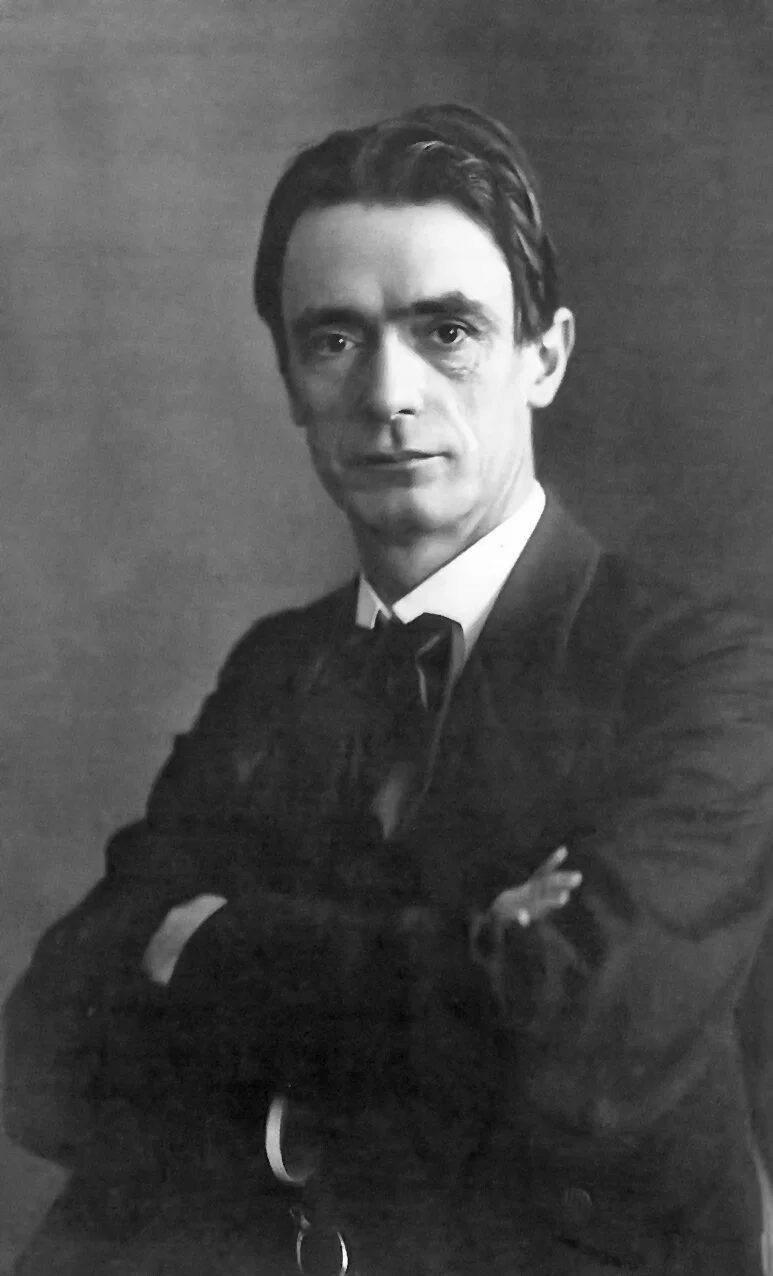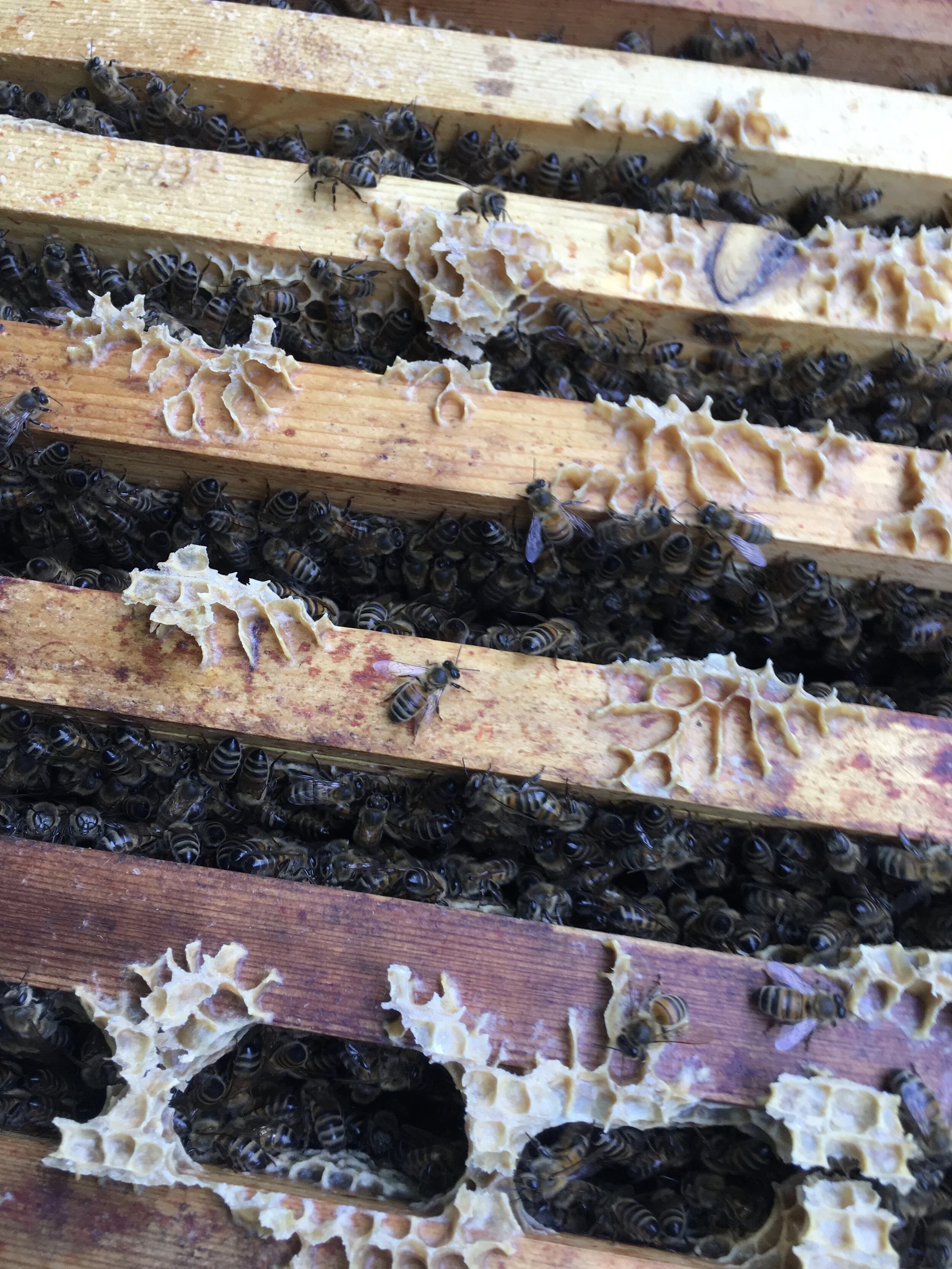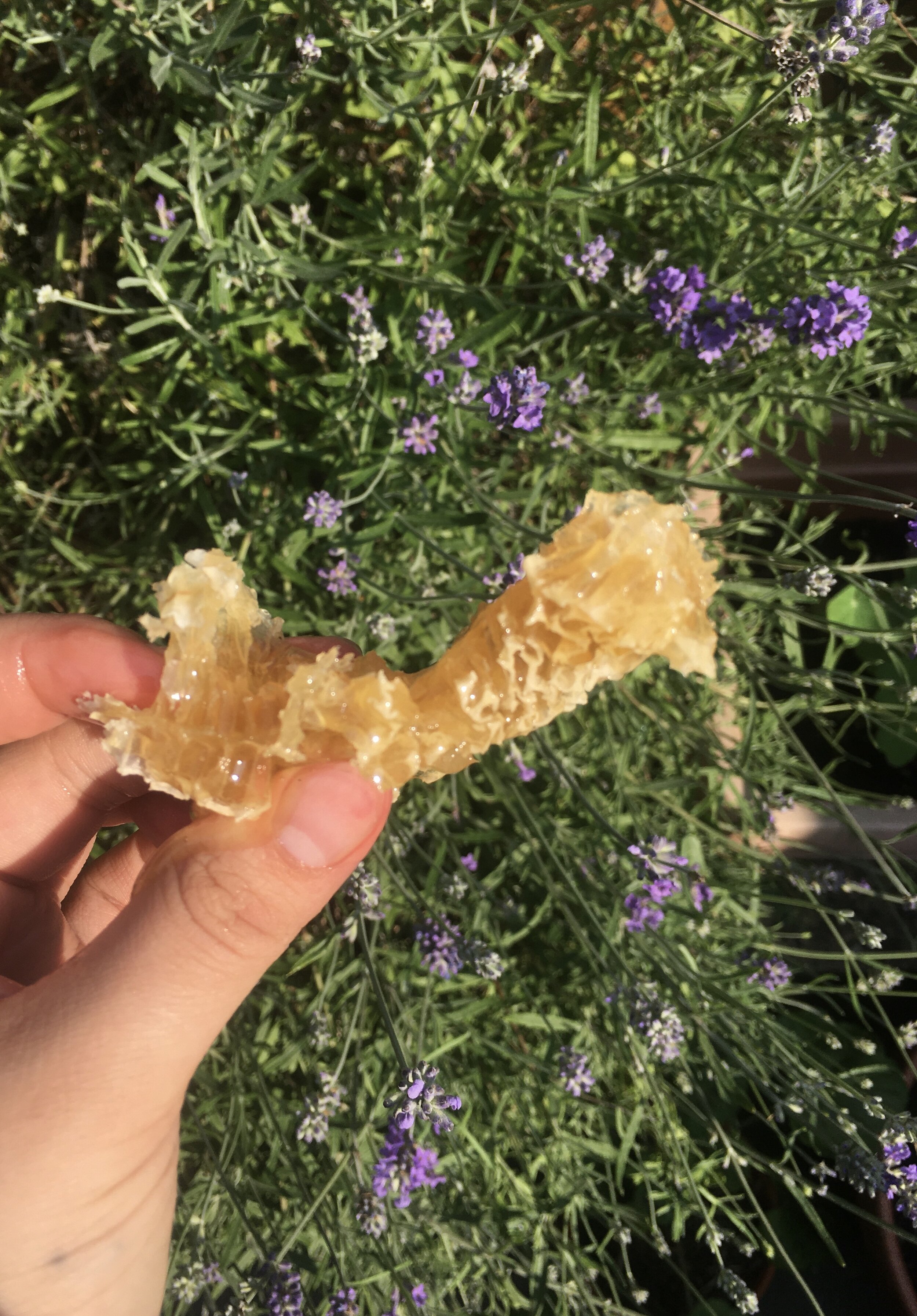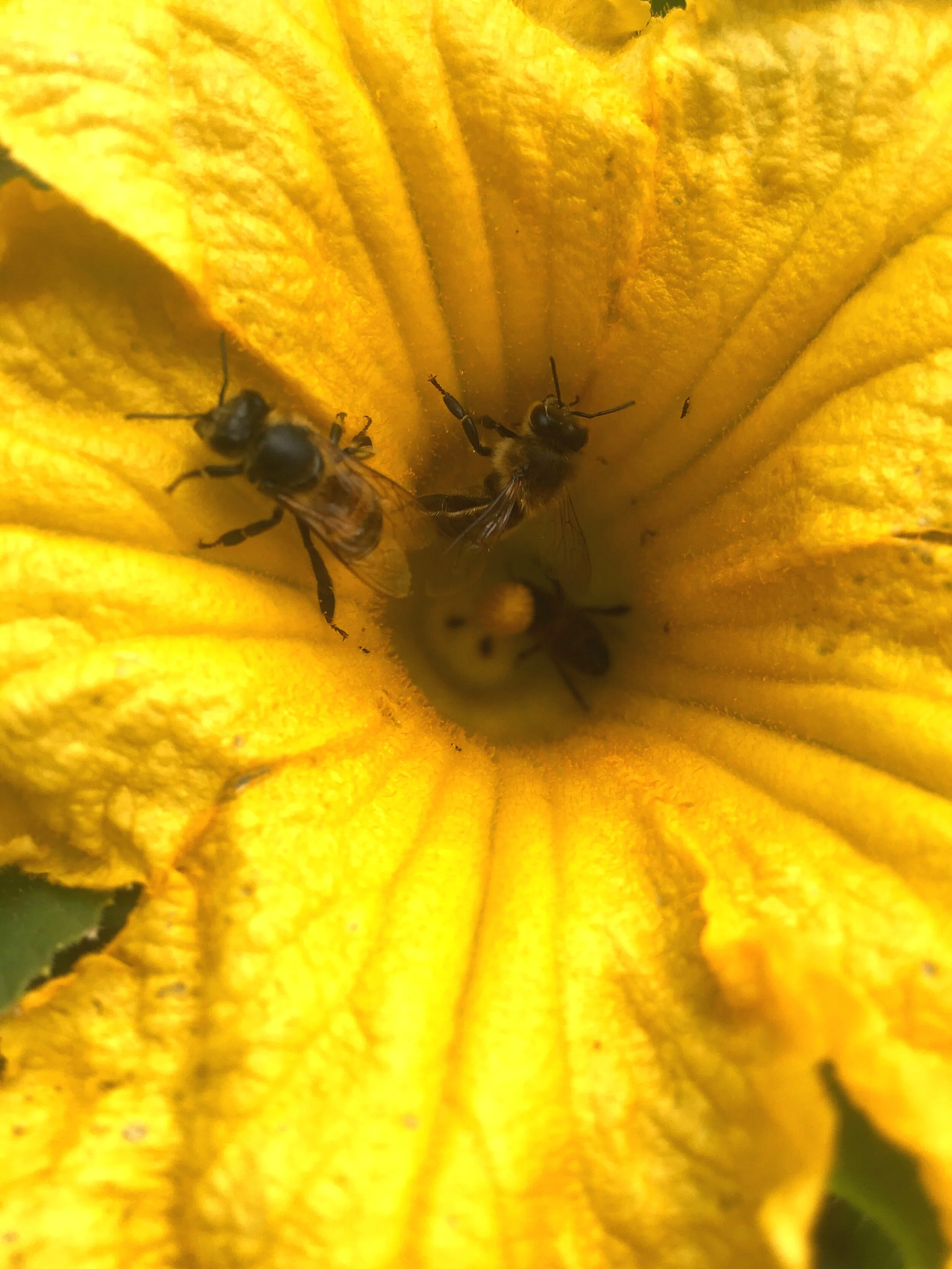Biodynamic Beekeeping
Biodynamics - what’s that?
1. : of or relating to a system of farming that follows a sustainable, holistic approach which uses only organic, usually locally-sourced materials for fertilising and soil conditioning, views the farm as a closed, diversified ecosystem, and often bases farming activities on lunar cycles.
In 1924, a group of Silesian farmers were concerned about soil depletion and the rising use of synthetic fertilisers. They invited Rudolf Steiner, the founder of Anthroposophy**, to host the first organic farming course. Over a series of eight lectures, Steiner spoke of the destructive future of industrial agriculture and how farming could be transformed into a harmonious practise through restorative techniques and the energetics of cosmic forces. He encouraged his followers to test his ideas and through collaborative, hands-on practise, biodynamic farming was formed.
**Steiner’s spiritual philosophy of Anthroposophy (anthropo-, human, and Sophia, wisdom) embraced esoteric practise, Christianity and natural science. It is a philosophy of freedom and encourages self discipline for spiritual development. Not only did it birth Biodynamics, but Steiner/Waldorf education, Anthroposophical medicine (including the company Weleda), social entrepreneurship and other movements.**
Biodynamics has similarities to organic farming, but due to its Anthroposophical roots, it is also a holistic, spiritual and transformative practise. It seeks to establish the full health and vitality of the land, the food which is produced and the humans who consume it. The first form of Regenerative Agriculture. Elements of Biodynamic farming that differ from organic farming include using the lunar cycles and cosmic forces (more on these below), and the use/preparation of nine fermented natural remedies for soil health and vitality. Within biodynamic beekeeping, these preparations are also to be used around hives within the apiary.
The Being of Bees
A year before Steiner’s agricultural course, he gave fifteen lectures which formed “The Functioning of Spirit in Nature and in Man. The Being of Bees.” Within these lectures, he spoke of the unconscious wisdom of the hive and its connection to our experiences of health, culture, and the cosmos. He (correctly) predicted that within the next fifty to eighty years, humanity would see the consequences of industrial beekeeping practises. Practises like artificial insemination of the queen bee, harsh chemical treatments of hives, and other dominant forces over the honeybee for the production of honey. These lectures created the foundations for Natural Beekeeping, a shift away from conventional beekeeping, and presented the honeybee as sacred. Steiner’s philosophy also presented honey as a sacred and medicinal substance, which should be consumed on its own.
The Cosmic Forces
‘Everything which happens here on earth is but a reflection of what is taking place in the cosmos’ – Rudolf Steiner, 1923
The philosophy of Anthroposophy acknowledges the etheric body, the angelic beings, ‘life forces’ and cosmic forces that exist alongside and guide the physical world. In Biodynamics, the cosmic forces that pervade nature are the Sun, Moon and zodiac constellations. The sun brings warmth and the seasons, the Moon has a strong influence over the water. The position of the moon and its passage/position throughout each of the twelve zodiac constellations during its 28 day cycle has an effect on the transmission of these influences to Earth.
In Biodynamic farming and gardening this passage of the Moon constitutes the different plant growth and work days:
🍠 Moon in Taurus, Virgo, Capricorn = Earth / plant roots are most affected (Root day)
🌿 Moon in Pisces, Cancer, Scorpio = Water / plant leaf development is enhanced (Leaf day)
🌼 Moon in Gemini, Libra, Aquarius: Air / flowering is most affected (Flower day)
🍓 Moon in Aries, Leo, Sagittarius: Fire / fruiting and seed production is most affected (Fruit day)
Honeybees are also affected by the cosmic rhythms and forces, and the different days act as a guide. As written in the Biodynamic Calendar:
🌍 Earth/Root days are a good time to open the hive if the bees need to do more building
🌬️ Air/Flower days encourage and stimulate brood activity and colony development
🔥 Fire/Fruit days stimulate the collection of nectar
💦 Water/Leaf days are unsuitable for working in the hive or for removing and processing honey
You can find out which day we are currently on by visiting this online calendar or through buying a copy of the Thun Biodynamic Calendar, which also includes the times of rest on eclipse days and other auspicious days.
Cosmic Fertilisation
Bees are recognised for their economic value and ecosystem services through the role of pollination. Within Biodynamics, the honeybee is also recognised for the vitality it brings to the Earth; cosmic fertilisation is believed to occur when the honeybee leaves a drop of its ‘bee-poison’ on the flower. This act is said to stimulate the etheric body of the plant, transforming it into a mirror of the cosmos (described by Ralf Roessner in The Genius of Bees). As Thomas Radetzki puts: “Bees continually help to weave the cosmic archetype of the plants into the processes of fruit and seed formation and so prepare the seed for the earth. They connect heaven and earth in this process and this love shown by bees for the flowers provides a further opportunity for deepening our understanding of bees.”
Standards & Practices
Within his bee lectures, Steiner stressed that the colony cannot be viewed as separate parts (the queen, the workers, the drones) but as a complete and whole organism. The role of the Biodynamic beekeeper therefore is to protect and maintain the unity of this whole, whilst respecting their natural behaviour. A key practise of Biodynamic beekeeping is embracing the power of the swarm for renewal, rather than suppressing it. Many beekeepers will use hives such as Warré, top bar, sun hives, skeps, or log hives to take a more natural approach that allows honeybees to express this behaviour.
There are also currently a number of Biodynamic standards for beekeeping as laid out by Demeter (the Biodynamic certification association):
✿ Hives should be located on Biodynamic, organic or wild land free from environmental pollutants
✿ Biodynamic preparations should be applied around the immediate hive surroundings each year
✿ Hives should be built from natural materials only (such as wood, clay, straw) and not use queen excluders
✿ Artificial queen breeding (insemination) and the genetic modification of bees is prohibited
✿ The clipping of the queen’s wings and systematic queen replacement are prohibited
✿ All comb within the hive should be natural and built by the bees (i.e no plastic foundation) but wax is not reused
✿ Aim to overwinter the colony on their own honey and any supplements must be Biodynamic or organic
There are currently a number of biodynamic bee farmers and keepers across Europe, some with over 500 colonies all managed using Demeter Biodynamic standards!
Recommended Reading
Nine Lectures on Bees by Rudolf Steiner
Wisdom of the Bees: Principles for Biodynamic Beekeeping by Erik Berrevoets
Biodynamic Beekeeping A Sustainable Way to Keep Happy Healthy Bees by Matthias Thun
The Genius of Bees and the Elemental Beings: How the spiritual world works through bees for nature and humanity by Ralf Roessner
Songs of Increase: Listening to the Wisdom of Honeybees for Kinder Beekeeping and a Better World by Jacqueline Freeman
The Spiritual Foundations of Beekeeping by Iver Thor Lorenzen
The Maria Thun Biodynamic Calendar by Maria Thun and Matthias Thun (updated every year)
Sacred Agriculture: The Alchemy of Biodynamics by Dennis Klocek
The Natural Beekeeping Trust / Biodynamic Association UK / Biodynamic Association USA
Do you practise Biodynamic farming, gardening or beekeeping already? Maybe you want to start? Let us know in the comments!






